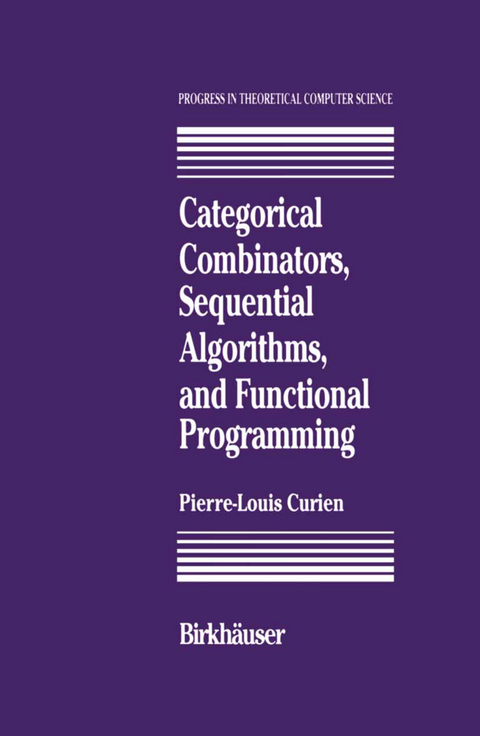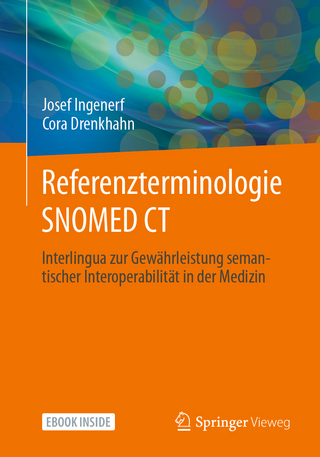
Categorical Combinators, Sequential Algorithms, and Functional Programming
Springer-Verlag New York Inc.
978-1-4612-6704-1 (ISBN)
1. Categorical Combinators.- 1.1 Introducing categorical combinators.- 1.2 ?-calculus and untyped categorical combinatory logic.- 1.3 Types and cartesian closed categories.- 1.4 From untyped calculus to typed calculus: axiomatizing a universal type.- 1.5 Models of the ?-calculus.- 1.6 Equivalence of presentations.- 1.7 Evaluation of categorical terms.- 1.8 Discussion.- 2. Sequential Algorithms.- 2.1 Concrete data structures.- 2.2 Representation theorems.- 2.3 Domain equations.- 2.4 Sequential functions.- 2.5 Sequential algorithms.- 2.6 The category of concrete data structures and sequential algorithms.- 2.7 Discussion.- 3. CDSO: The Kernel of a Functional Language.- 3.1 Declaring concrete data structures.- 3.2 The language of constants: states and sequential algorithms.- 3.3 The language of expressions.- 3.4 Operational semantics: presentation.- 3.5 Operational semantics: the rules of CDSO1.- 3.6 Pull abstraction for CDS0l.- 3.7 Discussion.- 4. The Full Abstraction Problem.- 4.1 The languages PCF, PCFP, and PCFC.- 4.2 Sequential algorithms and extensionality: the bicd’s.- 4.3 Complete bicd’s.- 4.4 Extensional algorithms and definability.- 4.5 Discussion.- 5. Conclusion.- 6. Mathematical Prerequisites.- References.- Index of Definitions.- Index of Symbols.
| Reihe/Serie | Progress in Theoretical Computer Science |
|---|---|
| Zusatzinfo | XX, 404 p. |
| Verlagsort | New York |
| Sprache | englisch |
| Maße | 155 x 235 mm |
| Themenwelt | Mathematik / Informatik ► Informatik ► Programmiersprachen / -werkzeuge |
| Informatik ► Theorie / Studium ► Algorithmen | |
| Informatik ► Theorie / Studium ► Compilerbau | |
| Mathematik / Informatik ► Mathematik ► Allgemeines / Lexika | |
| Mathematik / Informatik ► Mathematik ► Analysis | |
| Mathematik / Informatik ► Mathematik ► Angewandte Mathematik | |
| Mathematik / Informatik ► Mathematik ► Graphentheorie | |
| Mathematik / Informatik ► Mathematik ► Logik / Mengenlehre | |
| ISBN-10 | 1-4612-6704-8 / 1461267048 |
| ISBN-13 | 978-1-4612-6704-1 / 9781461267041 |
| Zustand | Neuware |
| Haben Sie eine Frage zum Produkt? |
aus dem Bereich


